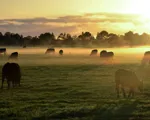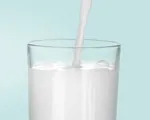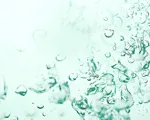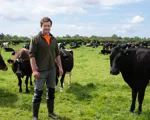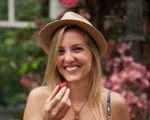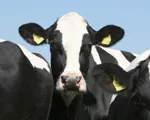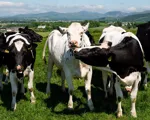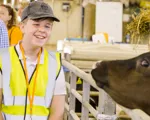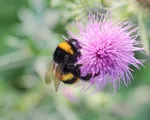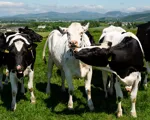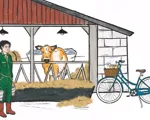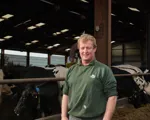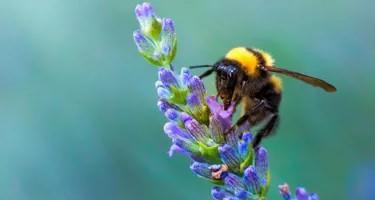
Why are bees so important to nature and what are the implications of the declining population? Learn more with our guide.
For millennia, the humble bee has buzzed around our gardens, stopping by plant to plant to collect and transfer pollen. They’re a regular and much-loved feature for our outdoor spaces, but they’re also playing out a vital role in the smooth running of our eco-systems and natural habitats. With all the work they do, bees are helping plants across the country grow while also helping other birds and animals access essential food sources– without the bees carrying out their day-to-day work, our natural landscapes and environments would look very, very different. Equally, they’re responsible for a great deal of the food that ends up on our plates – nearly a third of all food we eat relies on pollinators. So what exactly is it that bees do? How can we help our fuzzy friends out while they get to work? In this blog, we’re going to take a look at why bees are so important to the natural world and what we can do from the comfort of our own gardens to help them on their way.
WHAT DO BEES CONTRIBUTE TO NATURE?
The biggest contribution bees have to nature is their help with the pollination process. Bees are some of the biggest pollinators out there, and bee pollination is the main way that flowers reproduce. Bees land on flower heads to feed and in doing so, collect pollen on their fur and bodies. Once the bee is done eating, it’ll fly to the next flower where the pollen will fall off into the female reproductive system, allowing the plant to produce seeds, which grow into new plants.
This process allows more plants to grow, which means more food for the animals within the ecosystem, ensuring that they can stay well fed in the wilderness. With such a high percentage of crops pollinated by bees, bee pollination also keeps the biodiversity levels up and even helps our farms continue to produce food for us humans. Without bees pollinating our crops, our supermarket shelves, our larders and our cupboards would look much barer, with less variety in the foods we eat. As we saw earlier, nearly a third of all the food we eat is produced thanks to the efforts of hard-working pollinators, so they’re quite a big deal here in Britain. Added to that, without the bees pollinating flowers, there would be fewer and a smaller variety of plants out there, which would threaten different animal species and cause entire habitats to collapse.
IS THE BEE POPULATION STILL DECLINING?
Sadly, yes, the bee population is still facing a drastic decrease in its numbers. In a 2019 study, bee population data indicates that nearly a third of all bee species in the UK are experiencing a decline, with many rare bees facing possible extinction in the coming decades. In fact, 35 of the UK’s bee species are under threat of extinction, and with the warmer weather brought on by climate change, many dying bee populations are starting to move north to escape the heat. When did the bee population start to decline? This decrease has been going on for nearly 50 years now thanks to widespread agriculture, though with the onset of more environmental issues, things are rapidly getting worse.
WHY IS THE BEE POPULATION DECREASING?
One of the biggest declining bee population causes is thought to be the loss of habitats for bees and habitat destruction – this is mostly because of human activity. Often new residential areas and new industrial ventures are built upon areas of wildflowers and meadows, destroying bee nests and food sources as they are constructed. Other problems facing the bee population include things like climate change weather, flooding and air pollution. Another problem is the lack of pollinator-friendly flowers.
HELP THE BEES
The good news is that we can help our bee friends out from our very own homes and gardens. Here’s how: Plant bee pollinators in your garden – Some flowers are bee-friendly favourites that bees just can’t get enough of. The RHS (Royal Horticultural Society) has published a helpful list of these ‘Plants for Pollinators’ – you can find the list on the RHS website. We’ve also created our own guide to plants that your bees will love.
Build a bee hotel – Just like us, bees need somewhere to nest, relax and kick back after a hard day of pollinating. To help them out, you can build your very own bee hotel – set up your hotel in a cosy corner of your garden and wait for your guest to pile on in. Stay off the pesticides – Pests can be a major annoyance for gardeners, but as we’ve seen in this article, pesticides can wreak havoc in bee communities. Only use pesticides as a last resort for your garden, and only go for pesticides that are bee-friendly. Let wildflowers and weeds grow – Bees are all about wildflowers and weeds in their wild habitats, so setting aside a pollination station in your garden for wildflowers and weeds to grow is a great way of encouraging bees to grow, pollinate and thrive.
For a full rundown of ways you can make your garden more attractive to bees, head over to our blog and check out our guide to making your garden bee-friendly.
Sustainability can take all kinds of different forms, from building a bee hotel in your garden to developing new technologies for climate-smart and ecological agriculture. Every act contributes to a greener tomorrow for ourselves and the next generation.


